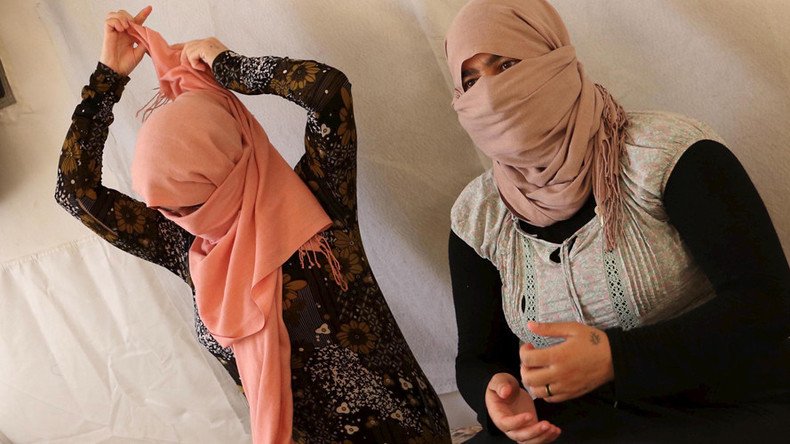Yazidi ex-slave girls subjected to traumatic ‘virginity tests’ to prove ISIS abuse

Having escaped abuse at the hands of Islamic State militants, Yazidi girls and women have been forced to undergo painful “virginity tests” to prove to Iraqi courts that they had been raped, Human Rights Watch has discovered.
A report looking into the post-ISIS fate of Yazidi women in Iraq was posted on the human rights organization’s website by Rothna Begum, a WRD researcher, on Wednesday.
One of them, a girl named Luna, says she was kidnapped by Islamic State (formerly ISIS/ISIL) militants, sold four times, and raped by all of her “owners.”
#ISIS holding more than 3,500 slaves in #Iraq, mostly women & children – UN report https://t.co/7tEKJ6BdHlpic.twitter.com/1Tg7BxV9Ad
— RT (@RT_com) January 19, 2016“Survivors my colleague and I interviewed, described organized rape, sexual slavery, and forced marriage by ISIS,” the report reads.
The victims described in the report were in need of psychological help, health care, and other services. While officials in Iraqi Kurdistan took their plight seriously, they still forced the girls and women to undergo “virginity tests” to confirm that they had been abused.
“These tests were seen as evidence of rape by Iraqi courts,” Begum wrote.
Good news! "Virginity Testing" to End for Yezidi Rape Survivors #Iraq#ISIS@hrwhttps://t.co/FVJ9woiRprpic.twitter.com/EhNCtCnhnj
— Rothna Begum (@Rothna_Begum) January 27, 2016Virginity exams, which are conducted out of cultural or religious beliefs, are commonly used in many parts of the world, including India, Turkey, Afghanistan, Egypt, Libya, Jordan, Indonesia, and South Africa.
However, such tests have been long been under fire by the World Health Organization, which has pointed out that they can cause pain and psychological harm.
“There is no place for virginity testing; it has no scientific validity,” stresses the WHO.
READ MORE: 'Convert or die': Yazidi refugees speak of ISIS assaults (RT EXCLUSIVE)
The good news is that the HRW has now received assurances by Kurdish officials that the practice will now end. A chief judge at the Dohuk Appeal Court, which is located in the capital of Kurdistan’s Dohuk Governorate, told the NGO that the committee tasked with collecting evidence has stopped using the tests and adopted a new reporting method in line with UN recommendations.
“The health directorate in Dohuk adopted a new medical examination report on sexual violence based on UN recommendations, consistent with human rights and best practice,” Begum writes.












